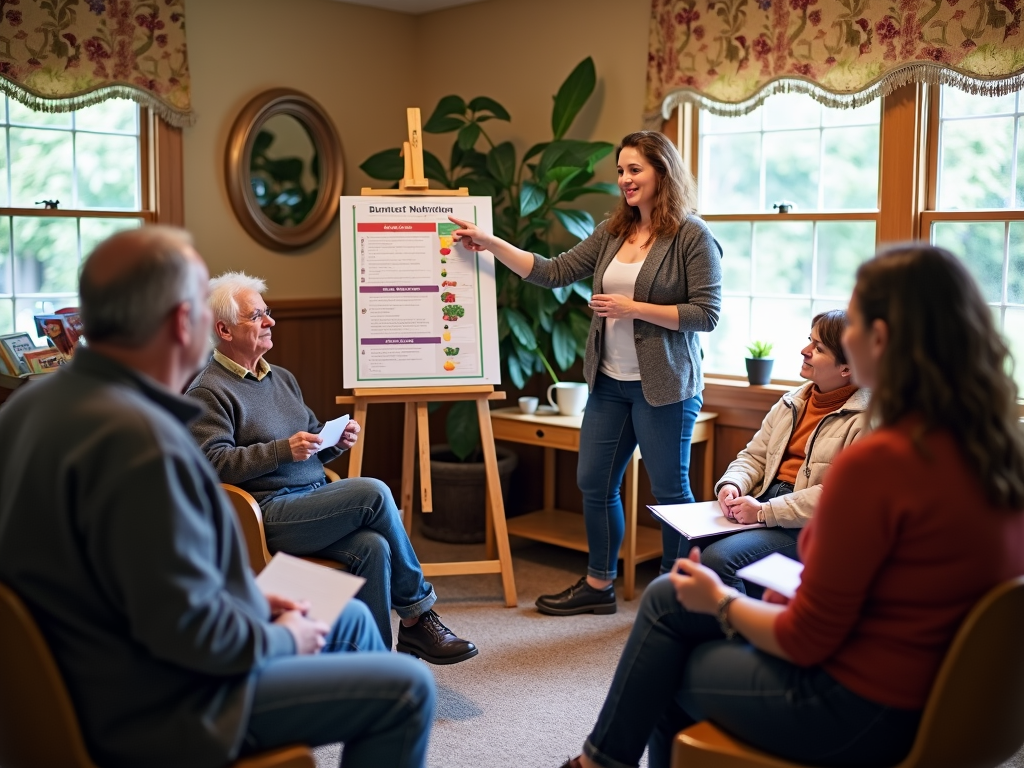Health Advocacy: How Volunteers Are Improving Community Health
By , March 22, 2025
Overview
Health advocacy is all about making communities healthier. Volunteers are at the heart of this work, teaching people, supporting patients, and pushing for change. Their efforts improve lives and strengthen neighborhoods every day.

What Is Health Advocacy?
Health advocacy means taking action to boost public health. It’s about teaching people how to stay well, helping them get care, and fixing big problems like poor access to services. Volunteers make this happen.
Think of it as a team effort. Some volunteers share tips on eating right or exercising. Others help folks understand their medical options. Then there are those who fight for better laws, like cleaner air or more clinics. Together, they tackle the root causes of health issues.
In underserved areas, volunteers shine brightest. They bring knowledge and care where it’s needed most, closing gaps that doctors and governments can’t always reach.

Why Volunteers Matter in Health Advocacy
Volunteers are the engine of health advocacy. They don’t just help—they lead. With their time and skills, they fill in where money and staff fall short.
Here’s what they do: - Teach: They show people how to prevent illness, like getting shots or washing hands. - Help: They guide patients through tricky healthcare steps, offering a hand or a kind word. - Push: They speak up for new rules, like safer streets or better food options. - Connect: They bring neighbors together for events that make health fun and shared.
No matter their background, volunteers fit in. You don’t need a medical degree—just a willingness to care.
A Volunteer’s Story
Maria, a volunteer from Ohio, got started after her uncle struggled with diabetes. “I saw how little people knew about managing it,” she says. “So I joined a local group. Now I teach classes, and it’s amazing to watch folks take charge of their health.”
Her story shows the personal side of advocacy. It’s not just numbers—it’s real people finding hope.

Impactful Volunteer Programs to Join Today
Volunteers power some incredible programs. Here are a few standouts:
-
Community Health Workers (CHWs): These volunteers visit homes, check blood pressure, and share health tips. They’re lifelines in rural spots.
-
Health Fairs: Picture a park full of booths—volunteers screen for diabetes, give shots, and chat about wellness. It’s free and open to all.
-
Advocacy Campaigns: Groups like the American Lung Association use volunteers to push for clean air laws. Their wins save lives.
-
Mental Health Teams: Volunteers answer calls on hotlines or run support groups. They’re there when someone needs to talk.
These volunteer advocacy initiatives for social change prove small acts can spark big shifts.

How You Can Get Involved
Ready to jump into health advocacy? Here’s how:
- Find Your Cause: Love kids? Care about seniors? Pick what fires you up.
- Look Around: Check VolunteerMatch or local health groups for openings.
- Learn Up: Many programs train you—free and easy to start.
- Take It Slow: Try a one-day event first, like a health fair.
- Meet People: Swap stories with other volunteers to grow your circle.
You don’t need much—just time and heart. Start small, and watch your impact grow.

The Difference Volunteers Make
Volunteer advocacy changes everything. Here’s how:
| Impact | How It Happens |
|---|---|
| Better Health | Teaching cuts down on diseases like asthma. |
| More Care | Free clinics reach people left out. |
| New Rules | Volunteers help pass laws for safer lives. |
| Stronger People | Folks learn to stand up for their health. |
In tough areas, volunteers bring hope. They don’t wait for systems to fix things—they step in now. And it’s not just others who benefit. Volunteers grow too, gaining skills and purpose.

Summary
Health advocacy thrives because of volunteers. They teach, help, and fight for better health, lifting up communities everywhere. Want to make a difference? There’s a spot for you in this work.